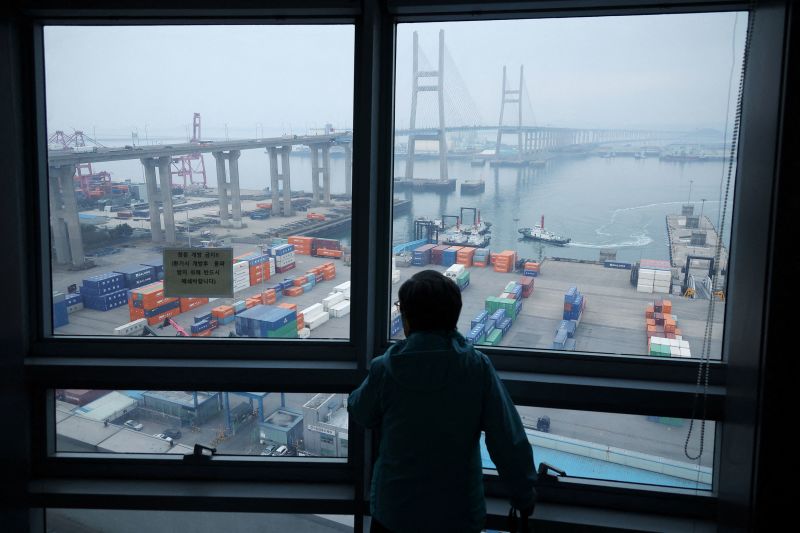
Want evidence Trump’s tariffs are upending the global economy? Here it is
CNN
Ever since President Donald Trump introduced his first set of higher tariffs, it’s been a waiting game to see just how big an impact they’ll have on the global economy.
Ever since President Donald Trump introduced his first round of new tariffs, it’s been a waiting game to see just how much they’ll impact the global economy. This week, one of the earliest signs was revealed — and it wasn’t pretty. South Korea’s Customs Service reported that exports for the first 20 days of April declined by 5.2% compared to the same period last year. That singular data point is a “key bellwether” for where trade is heading, Min Joo Kang, a senior economist at ING, said in a note on Monday. The decline in exports came after Trump enacted a 25% tariff on all aluminum, steel and auto imports. All other South Korean imports were also briefly subject to a 25% “reciprocal” tariff before Trump delayed it until July. Instead, imports from there are subject to a nearly universal 10% tariff. That was evident in the data, which showed that car and steel shipments fell 6.5% and 8.7%, respectively, year over year for the first 20 days of April. Overall exports from South Korea to the US declined by 14.3% from last year. The bright spot was semiconductor exports, which rose 10.2% compared to last April. Semiconductors remain exempt from US tariffs, but Trump has said he aims to implement tariffs as high as 25% on the product.

Sales prices for sports teams are soaring to record levels. Here’s why, and what that means for fans
The Los Angeles Lakers topped their archrival the Boston Celtics with a record-setting $10 billion franchise price tag this week — just three months after the Celtics held the honor for the highest sale price for a professional sports team at $6 billion. The record may not last long.

Predictions from mainstream economists were dire after President Donald Trump launched his tariff campaign just a couple weeks after he began his second term in office: Prices would rise — sharply — they said, reigniting an inflation crisis that tens of millions of Americans had elected him to solve.





















 Run 3 Space | Play Space Running Game
Run 3 Space | Play Space Running Game Traffic Jam 3D | Online Racing Game
Traffic Jam 3D | Online Racing Game Duck Hunt | Play Old Classic Game
Duck Hunt | Play Old Classic Game









